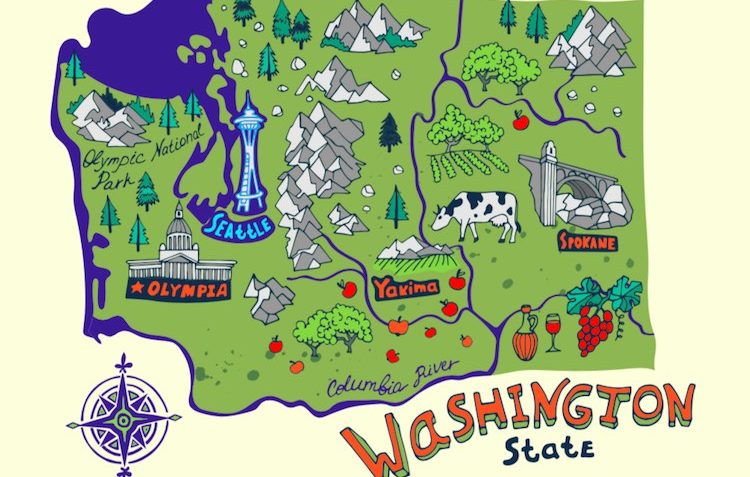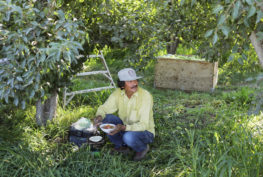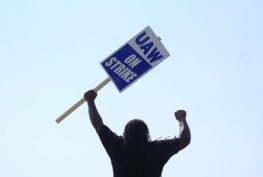From Sports Handle
Karen Keiser, Chair of the Washington State Senate’s Labor and Commerce Committee graciously referred to Thursday’s hearing on legal sports betting as “robust.” She would have been just as right to say the battle lines have been drawn.
On one side is Maverick Gaming, a commercial card-room operator that is squarely behind SB 6277, which would allow sports betting at tribal casinos, card rooms and horse racetracks across the state. The bill allows for state-wide mobile sports wagering. On the other side, are the state’s Indian tribes and many others, who are backing a more limited bill, SB 6394, that would legalize sports betting at tribal casinos only with no state-wide mobile.
“I would say that we feel positive about our position and our progress about the bill and that the legislature sees the good work that we do for the communities,” Kevin Zenishek, the executive director of casino operations for the Northern Quest Casino, which is owned and run by the Kalispel tribe, told Sports Handle after the hearing. “I would say that Maverick Gaming is taking money out of the state and that is their goal. We keep the money in the state and help the local economy thrive.”
Maverick Gaming hopes to make inroads
Zenishek did not testify but has gone on record as saying this his tribe’s interests are in line with many other tribes in the state, and they are vehemently opposed to state-wide mobile wagering.
Thursday’s hearing was the second of two in the Labor and Commerce Committee in the last two weeks.
During the hearing, Maverick Gaming had no less than five representatives argue for its bill, including food-and-beverage and casino-floor employees, who talked about the opportunities that Maverick Gaming has created in terms of job creation. The company CEO, Eric Persson, reiterated his belief that state-wide mobile and retail sports betting at commercial sites are what’s really needed to stamp out the black market. In new legal sports betting jurisdictions including New Jersey and Indiana, the percentage of wagers taken remotely via mobile/online devices has grown to nearly 90%.
Maverick, a new player on the Washington gambling scene, owns 19 card rooms across the state. Persson’s goal during this legislative session — which adjourns in just six weeks — is to educate and make allies.
But in an interesting twist, Charlene Nelson of the Shoalwater Bay Tribe shared that Persson is a member of her tribe while distancing her tribe from the Maverick CEO.
“I am testifying today because it’s important to set the record straight. Eric Persson is a member of the Shoalwater Bay Tribe, but he does not speak for our tribe and we oppose SB 6277,” she testified. “I feel very strongly that we do what’s right, and what’s right is to oppose this bill, and my console believes this, too.”
Tribes: We give back to the community
Nelson testified that tribal gaming helps her tribe to support its elders and give back to the community. That sentiment was echoed by Indian leaders from other tribes who testified on both bills.
“We hear that tribal gaming is funding essential governmental services into some of the poorest and most rural communities in our state,” testified Rebecca Kaldor, the executive director of the Washington Indian Gaming Association. “Sports betting would be an additional amenity and would not expand the existing gaming footprint.”
Said David Bean, chairman of the Puyallup Tribe and vice chairman of National Indian Gaming Association: “Tribal gaming isn’t just about tribe. The way gaming is runs today, it benefits our neighbors, too. (Tribal casinos account for) 55,000 jobs in Washington State. Online gaming sites are not safe. Our casinos are safe where you can come and bet in highly regulated environments that are safe. We have a proven track record of regulating gambling.”
If action in the House on Thursday is any indication, legislators are inclined to agree. While the Senate hearing was going on, the House Commerce and Gaming Committee moved its version of the tribal-only bill, HB 2638, forward by an 8-2 vote, while no action was taken on HB 2478, the commercial bill. HB 2478 is not currently listed on any committee agendas, and that could be an indication that a commercial bill won’t get support in either chamber.
Washington’s legislature has a short session this year, with a scheduled adjournment on March 12. According to legislative calendar, bills must move out of committee by Feb. 7 to have a shot at getting to either the House or Senate floor. HB 2638 will now head to the Appropriations Committee, which has until Feb. 11 to approve it. Should that happen, a floor vote must take place in the House by Feb. 19. The schedule and deadlines are the same in the Senate. The tight time frame could mean that no action is taken on sports betting.
Sentiment leaning toward tribal-only bill
On the Senate side, there was no vote Thursday, but sources say there will likely be one next week. Sentiment in the hearing room seemed to lean toward the tribal-only bill, for which 29 people signed up testify, and only two of those were opposed. For the SB 6277, opposition didn’t just come from the tribes, but also from the Department of Public Instruction, a horseman’s association, and the Washington State Attorney’s office.
Pat Lesley from the state’s Horsemen’s Benevolent and Protective Association said Washington “does absolutely nothing” for the horse racing industry and that at least one tribe has been instrumental in keeping the industry alive and “we won’t walk away from that.”
Yasmin Trudeau from the Attorney General’s office testified that SB 6277 would “undermine the state’s system of tightly regulated gaming.”
By Jill R. Dorson





